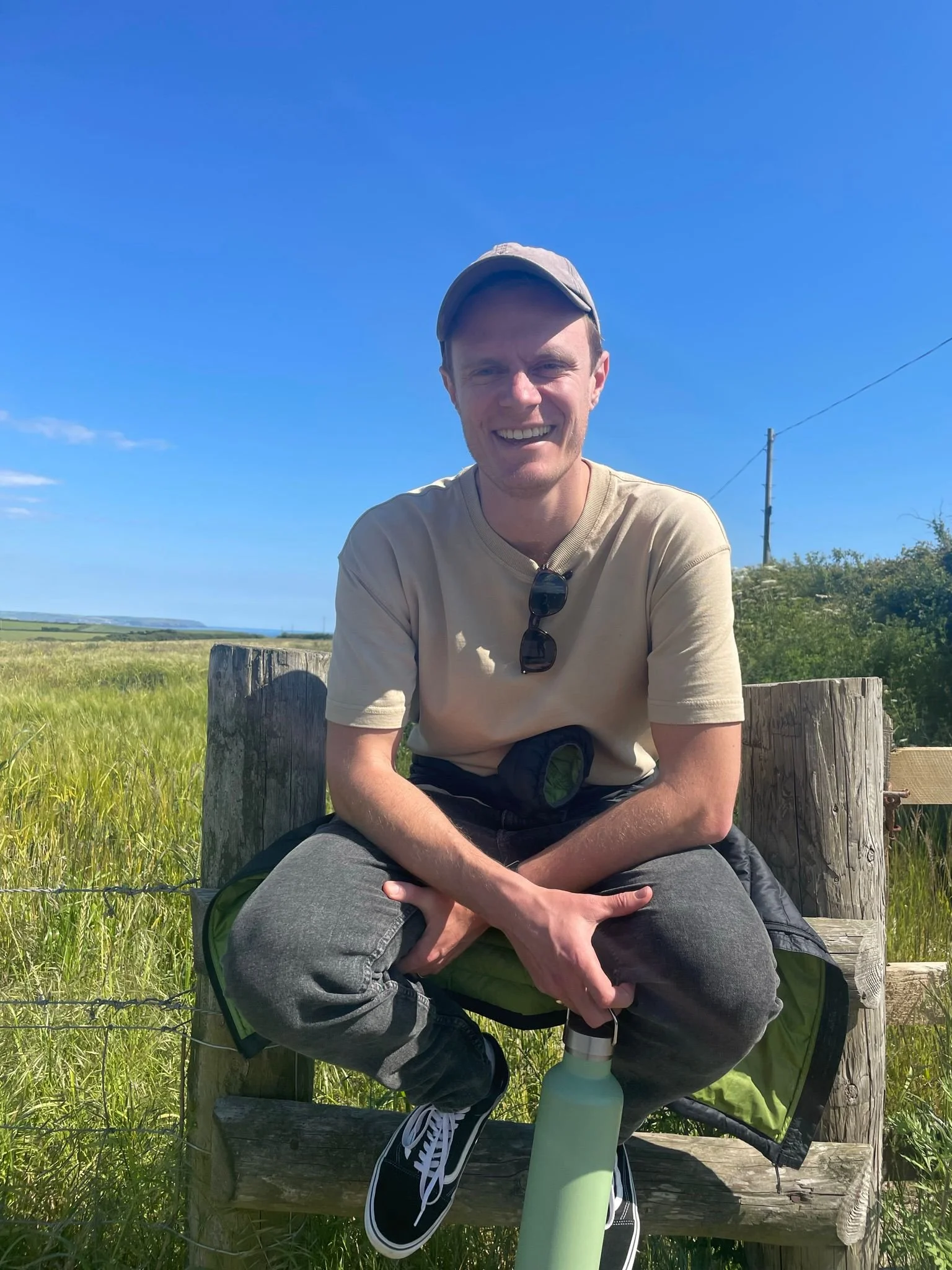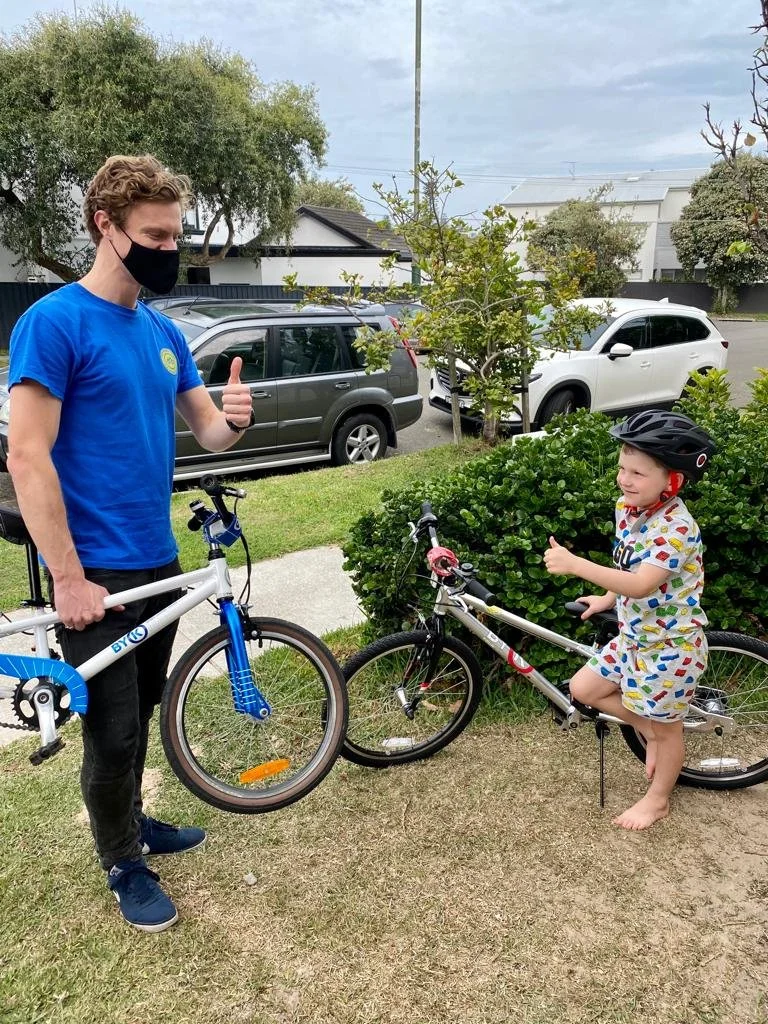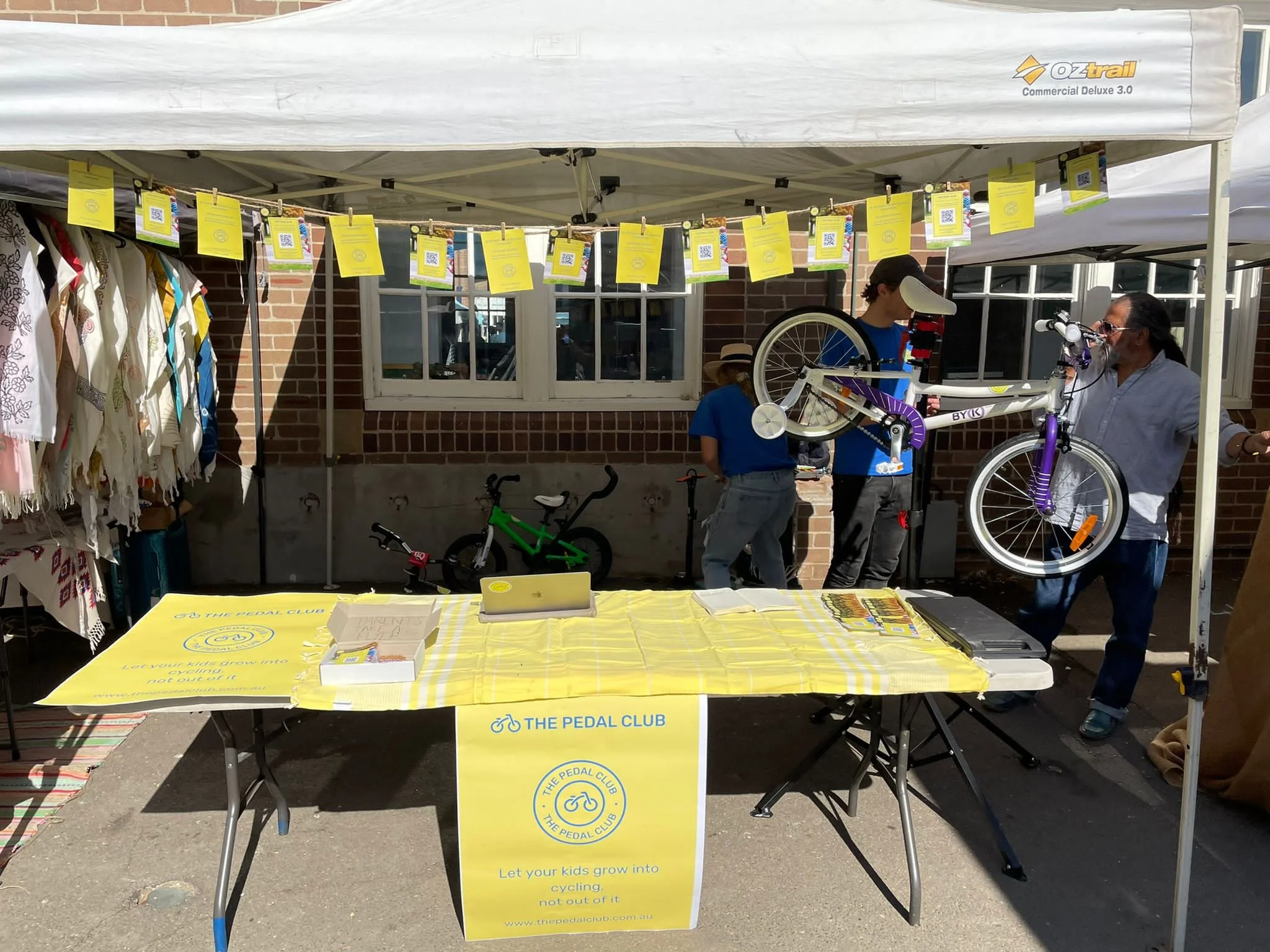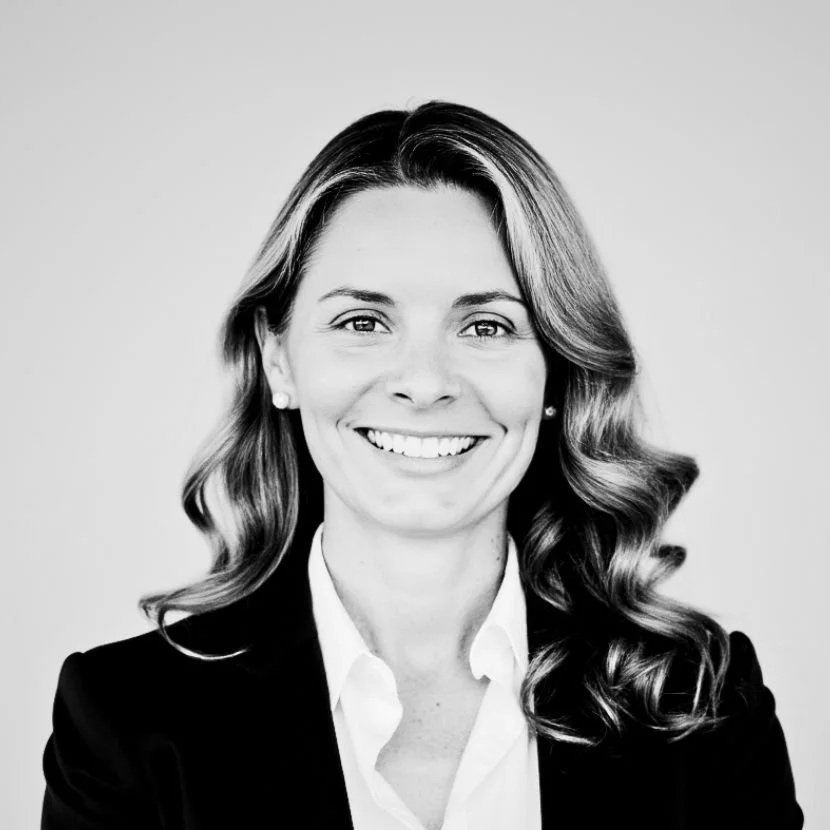Fergus Woollcombe On Building Sustainable Businesses With Circular Product Offerings
Fergus is the Founder of The Pedal Club, a business formed out of a passion for making sustainable and environmental change in the world of cycling.
Fergus, a born and bred Pommie, moved Down Under 5 years ago, excited about a new city and market having studied Real Estate and qualified as a Chartered Surveyor in London. As his career progressed, his enthusiasm for his work and the wider industry waned, largely due to the perceived lack of interest from colleagues and clients in Climate Change, an issue Fergus felt passionate about.
As a result, The Pedal Club was born. Fergus stepped into the unknown to try and make a difference by launching a kids bike subscription service, allowing parents to swap their kid’s bikes as they grow. His focus is now on extending the short life cycle of a child’s bicycle whilst encouraging the next generation to get outside and appreciate our wonderful planet.
Fergus discusses how Individuals who are passionate about making a difference can start a social enterprise and Why the circular economy is crucial for businesses to be environmentally sustainable.
Highlights from the interview (listen to the podcast for full details)
[Indio Myles] - To start off Fergus, can you please share a bit about your background and what led to your work in sustainable business?
[Fergus Woollcombe] - I am from the UK, and I've been over in Sydney for five years now (which has gone quickly). I actually used to work in the real estate industry, I was qualified as a charter surveyor back in London and was on a career path to work in the property world for the rest of my life. I'd studied it in university, so that was (supposedly) me set for life. When we moved over here nearly five years ago, I got a job in the commercial real estate sector. It was one of those things I just didn't have the passion for that some people did. As you can imagine, in a corporate industry like that, there's the prospect of making a lot of money, which drives a lot of people in that world. That wasn't really a huge driver for me, and I didn't have the same passion some people did for the industry and the work we were doing. But it's funny, it takes years and years to come to realisations like that, which I didn't necessarily know. It wasn't until COVID-19 when the property industry got put on ice and work died down, I realised. I guess I had a lot more time to think and basically, I realised I would much rather be doing something that would have a positive impact on the world.
I think a third of your life is spent working, so I thought, "why do I want to do something that doesn't have that positive impact and doesn't fulfill me?" At the very least it's not something that I felt passionate about.
It would've been 2019 I started thinking this, and I think 2020 was COVID, so that was when I started looking and basically exploring. I started having a look around, looking over the parapet and seeing what was out there. During that time, I'd started applying for some jobs I quite liked the look of, and I was speaking to people outside of the real estate industry to get a taste for what that might do for me, and it was at that time I got made redundant. It is definitely possible that the search for new jobs and the redundancy weren't unrelated, but regardless, I'd then been handed the opportunity to explore. I believe everything happens for a reason, so I had been handed this opportunity to explore those new opportunities without having the pressure of getting a new job straight away, because obviously I received a redundancy payout. As a bit of a backstory, I've always been someone who will come up with a new business idea, do some research, get excited about it, write loads of stuff down on a page and then never look at it again. I've got tons of Google documents full of these weird and wonderful ideas. At that point, I started looking at jobs for companies and in roles I was interested in.
I also started looking back over some of those ideas. A lot of them had a sustainability /environmental focus, because that was something I was increasingly passionate about, and passionate may be the wrong word, concerned is more appropriate.
That formed a passion for me, and I was neatly trying to do some good in the real sector and for the company I was working for without a huge amount of success. One of the ideas I stumbled across was in the world of bikes. I'm a cyclist and the idea was focused on the second-hand market. It's such a brilliant industry for so many reasons, but it's also one that is quite inefficient. This is particularly in the second-hand market, which is so good if you're a new cyclist and you don't know where you stand within it. Bikes are super expensive, and the second-hand market is full of untrustworthy sellers. If you have no bike knowledge, it's really difficult to know where to start. My idea on this page I stumbled across was a trusted second-hand marketplace that allows people to trade in the second-hand marketplace. They wouldn't have to worry about getting something new and therefore reduce waste at the end of the bike's life, because they end up back in the bikes on the second-hand market. I was pretty intrigued by this and then started with some desktop research. I also spoke to a couple of mates about it. I suppose I was really lucky in the sense I had that period of time because of the redundancy to explore this stuff. That's what led me to what is The Pedal Club today. I actually ended up buying an ex-demo Bianchi bike to test one of the business models I'd been playing with. That's actually when I learned my first harsh lesson in being a business owner. I sold the Bianchi months later at a six hundred dollar loss!
I still felt something was there, and it was an industry I cared about and an industry where I could do some good. It ticked a lot of the boxes I hadn't been able to tick in the real estate world.
Then I actually ended up getting a part-time job in a bike shop to learn a little bit more about the industry and the product. That's what led me to The Pedal Club. That's when The Pedal Club was born, when I stumbled across an opportunity in the kids bike market.
As founder of The Pedal Club, can you tell us a bit more about this enterprise and its primary activities in social sustainability?
The Pedal Club is a subscription service for kid’s bikes, the idea being that parents could swap the bikes as their kids grow. We offer a number of new and what we call preloved bikes, which are essentially refurbished second-hand kids bikes from a few different brands for between $15 and $35 a month. Obviously, kids grow incredibly fast, so buying a $400 bike can be an unnecessary cost and a bit of a pain in the backside if they then outgrow it within a few months. Then, you've suddenly got a brand new bike that you have to sell on the second-hand market. The big vision for The Pedal Club is multiple product lines and package offerings, giving parents a more sustainable approach to consumerism and getting stuff for their kids, essentially in an all in one easy to use service. There's huge circularity principles to it. We take all the bikes back once they're swapped and refurbish them. Then we get them back on the website and out there. Bikes with us are getting four or five times the life they might otherwise get.
What have you learned about raising investment to get an idea or enterprise off the ground?
I've raised a little bit of investment at the very beginning of my journey, just to extend the early runway and to explore business models and stuff. That was more about bringing on a partner who was willing to invest in the project. I guess I don't necessarily class that as raising capital, but I did do a pre-seed fundraising round. The Pedal Club is only 18 months old. I started this back in January of 2021. I did the pre-seed round late last year. I think the first thing you need to work out what business or enterprise you're running.
Not every business or enterprise necessarily needs investment. I would say as soon as you raise capital (depending on which way you're doing it) and equity investment, then you obviously have the added complication of multiple shareholders and investors you have to deal with.
That's got its own challenges, and in a way, if you've got your own business and are bootstrapping it, you own a hundred percent of it and it's completely up to you what you do with it and how you deal with the money. I think the first I’d recommend is work out what you need, why you need it, and how much money you need. It's not a prerequisite that you go and raise capital. I want The Pedal Club to have a large international impact, and to reach that impact, we need to scale the business to a certain level for it to be profitable. To bootstrap it the entire way would be really difficult, because as you can imagine, if you're subscribing kids’ bikes, the margin is relatively low, so you need a large volume in order to reach profitability. From the offset, I knew that investment was going to be necessary. It was from day dot I knew this; it was always a part of the roadmap. But I would say if you have established that, you need investment and that is going to form part of your journey, then I would build your network as early as you possibly can. I don't mean tapping people up for investment early, but instead getting people interested in what you're doing and gaining their engagement early on and you never know what new perspectives and insights you'll gain from those people as well. I guess don't worry about rejection also, because not everyone is going to be interested in what you're doing and not every investor is going to see it as an opportunity. There are so many different types of investors.
There are so many different ways of raising capital that not every method, person or fund is going to be interested in what you do. I know that The Pedal Club is probably not something that ticks a lot of boxes for venture capitalists, so I don't spend a huge amount of time trying to build my network in the VC world. I think it is about understanding who might be interested in your business and will come with time. You start to meet different people and you get an idea for what they're looking for, their mandate, and how much they're looking to invest in the type of projects. That would be my advice, understand the types of investors that might be interested in, focus your attention on them and build that network nice and early. Don't be afraid to get out there and tell people what you're up to.
As an alum of the HATCH Taronga Accelerator program, what were some of the key lessons you took away and what would be useful for other founders listening in?
Taronga, first of all, is brilliant! Apply for it. I was on the HATCH Taronga program midway through last year. It was a fantastic program. I think what it taught me is to surround myself with like-minded people. There are a lot of brilliant people out there doing amazing things, and unless you get out there, meet them and get to know them, then you don't know they exist. I'm a solo founder, I've got a partner in the business, but he's more like a passive investor. Particularly as a solo founder, it can be a pretty lonely journey, so doing something like the HATCH Accelerator was just inspiring and energising. Even if you don't go into a program like HATCH Taronga, there might be something else out there for you, there are so many brilliant programs. I would definitely get on one of them or at least surround yourself with some like-minded people. Take an interest in what they're doing and they'll take an interest in what you are doing. I had my eyes opened a little bit as to there are so many different ways of running, launching and growing a business. It was really good for the educational piece.
Going into the start-up world (particularly if you haven't worked in the start-up world before) is quite complicated. I knew very little, had my idea, and tested the market. I started to gain customer traction and was on my own path.
I didn't learn the theory and put it into practice, so I was really learning key things about the start-up and social enterprise world that I didn't previously know. They get some brilliant speakers on, and the people that run it Tom and Danielle are fantastic. Unfortunately, Danielle's just left, but I'm sure they'll get someone else on who's brilliant as well. That was one thing I learned, as well as not to get stuck on your idea in the way that you formulated it. Be open to what other people think. It was particularly good because we did so many workshops where at the end of it you go, "oh I could look at it that way." You had gained a new perspective you didn't have previously. I think generally it's a great idea to get yourself in a room. I actually have done a couple of different programs. I did a pre-accelerator program called Catalysr, I was on a workshop/boot camp with Boomerang Labs. Doing as many things as you can like that are just great because you're meeting people who are equally grinding out their own path and trying to do good in the world. It's always pretty inspiring and energising to put yourself in that position.
What are your tips for entrepreneurs to integrate circular economy principles into the core aspects of their business?
I think first and foremost, it's not always easy incorporating circular principles into your business. It's not always the most attractive idea in the room, and as I've found with The Pedal Club, it's often low margin. The pathway to profitability is not as obvious as one of these technology or deep technology companies. If you are going to start a circular economy focused business, then make sure you really know your numbers, run the models, run the sensitivities on the models, make sure you're happy it works and get advice on it as well.
Don't just blindly go out there and think it's going to be a great idea and everyone's going to love it, because that’s not always the case. This year in truth has been really tough with The Pedal Club, and that is in large part down to the weather we've had in Sydney.
You often think you've got the best idea ever, and it's brilliant and everyone's going to absolutely love it, and people will invest in it. But it's not always the case, so the best thing you can do is make sure it's a really sound business proposition. Going back to your previous question about HATCH, that was another key takeaway. Always work back through your business model canvas, your numbers and your models to make sure you are happy that it works. You've got that pathway set out, you've got a clear roadmap, and you know what you are doing. It's very easy to get caught up in the minutia of the detail, and so I would say always take a holistic approach and think about it from a high level. Doing something that incorporates circularity is super rewarding, so when you see it work, there's nothing better. If you can, even if it's just incorporating circularity principles into an existing business, I would definitely recommend doing it. Get to know your market, know your models, run the numbers. Actually, getting to know your market is a big tip, focus on that. I've seen a lot of businesses that focus on the product first. They make a brilliant circular focused product or service but haven't gone out to the market and tested the market. You're just in danger of a still birth entry into a market if you don't do that, because you don't know there are customers out there for it. That’s something I probably didn't do enough early on; get out and actually talk to my customer base.
What inspiring projects or initiatives have you come across recently that are creating a positive social change?
I previously mentioned a program I think is great. It's Boomerang Labs, they have a number of different programs, and I think they've just launched their accelerator program, which might be up and running at the moment. All of their programs are focused on circular economy focused business. It's really cool, and I'm pretty sure I saw a post on LinkedIn the other day about the accelerator, so go and check out the businesses on there, because they will no doubt be awesome. I did the boot camp program, which is like a two day boot camp, which helps you refine your business. As I say gets you in front of and talking to the right people. I think they've got another couple programs as well. They are really good, obviously HATCH Taronga is fantastic. There are so many great things going on, brilliant start-ups, programs and initiatives.
What books or resources would you recommend to our listeners?
Just on the theme of programs, there's a great newsletter feed I get from Spark Festival, and it's not all to do with accelerator programs, but they send you a daily update on what's going on in the start-up/scale up world. I would recommend getting on the circular economy Slack channel, that is really good. Try and join some start-up community groups. I occasionally go down to Fishburners in the CBD for their pitch night on a Friday. That's usually pretty cool. You see all sorts of businesses and founders pitching. I've never actually done it myself with The Pedal Club, which I probably should, but they use it as a way to practice their pitches. I think they get rated by a panel of judges and stuff, but you can go just as an audience member and have a bit of pizza, some beer and watch those. It was quite fun to meet a couple of people. In terms of books and resources, I've just finished Outliers by Malcolm Gladwell. That is absolutely fantastic and quite inspiring.
What I would say, which I have found is I get much more from listening to podcasts than I do reading, but search for podcasts in industry. There are so many podcasts out there, it's very difficult to find anything just organically.
Search for podcasts in your industry, and that's one of the best ways I've learned about things either in the start-up world, social enterprise world, the environmental space or the bike industry. You never know what's out there until you search for it. I would say YouTube would be your best friend if you're a solo founder. That's how you learn to do almost anything. Impact Hustlers is a great podcast. Impact Hustlers is all about founders that are creating businesses, projects and initiatives for social and environmental good. I get newsletters from the Startup Daily, TechCrunch and things like that as well, which is always good.
Initiatives, resources and people mentioned on the podcast
Recommended books
Outliers: The Story Of Success by Malcolm Gladwell









